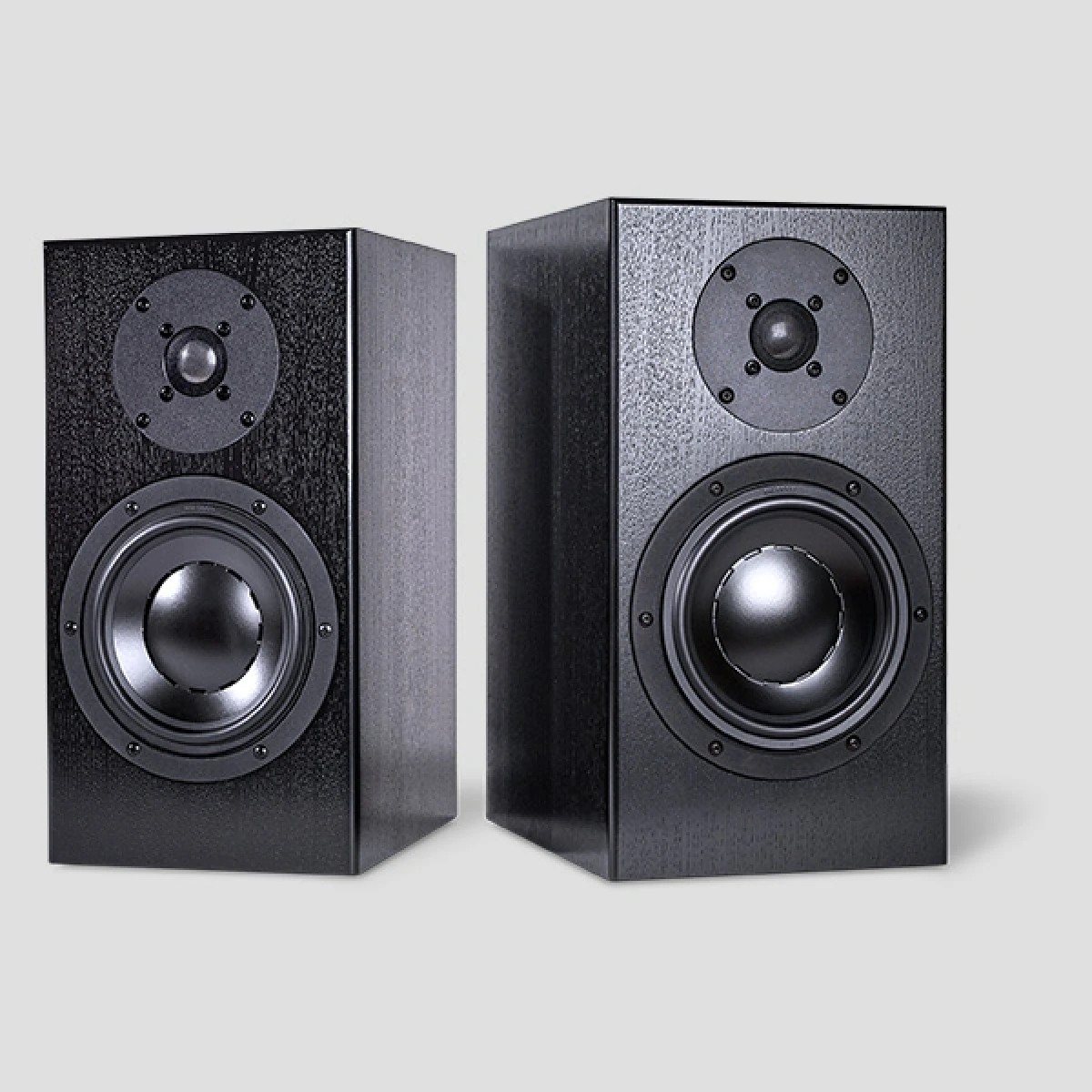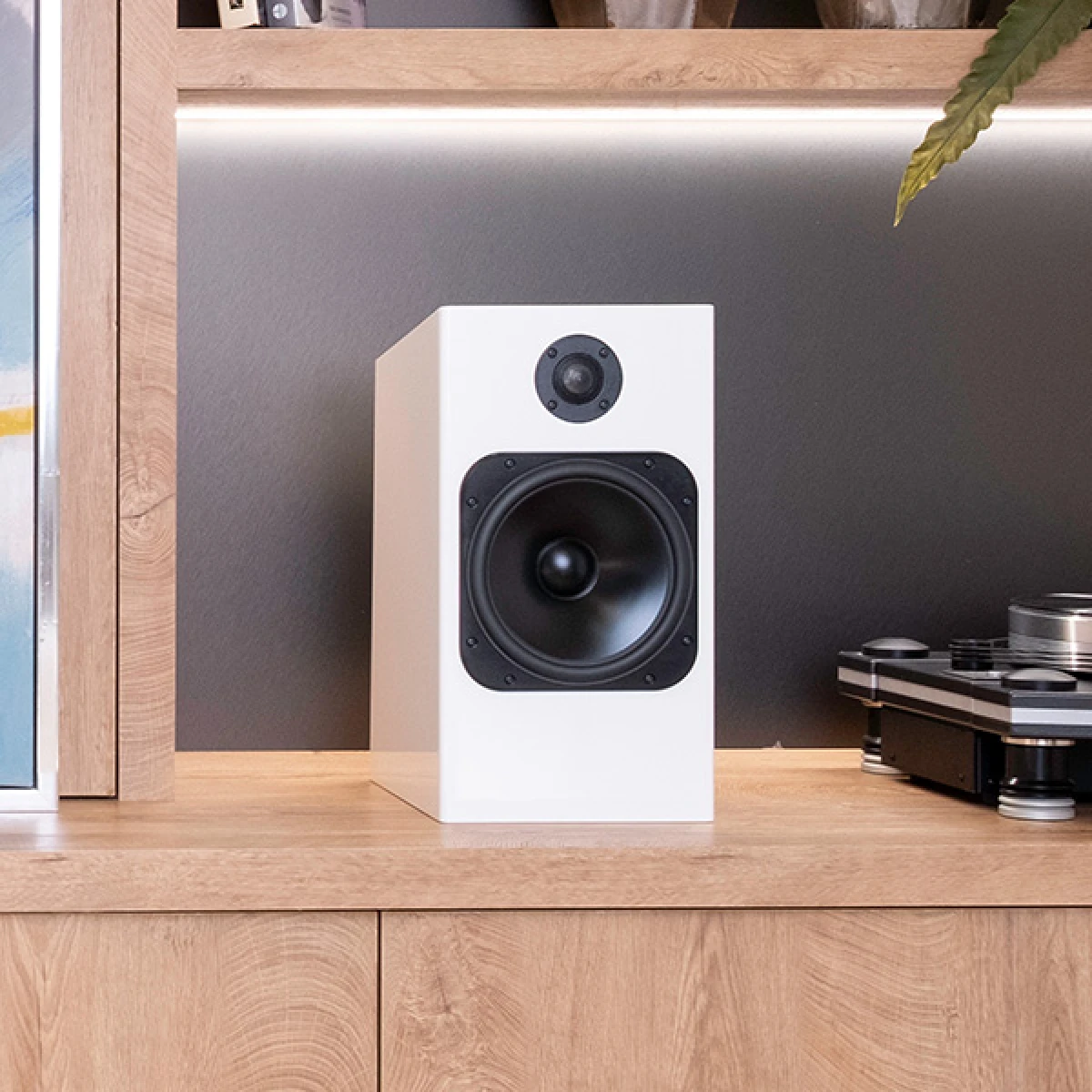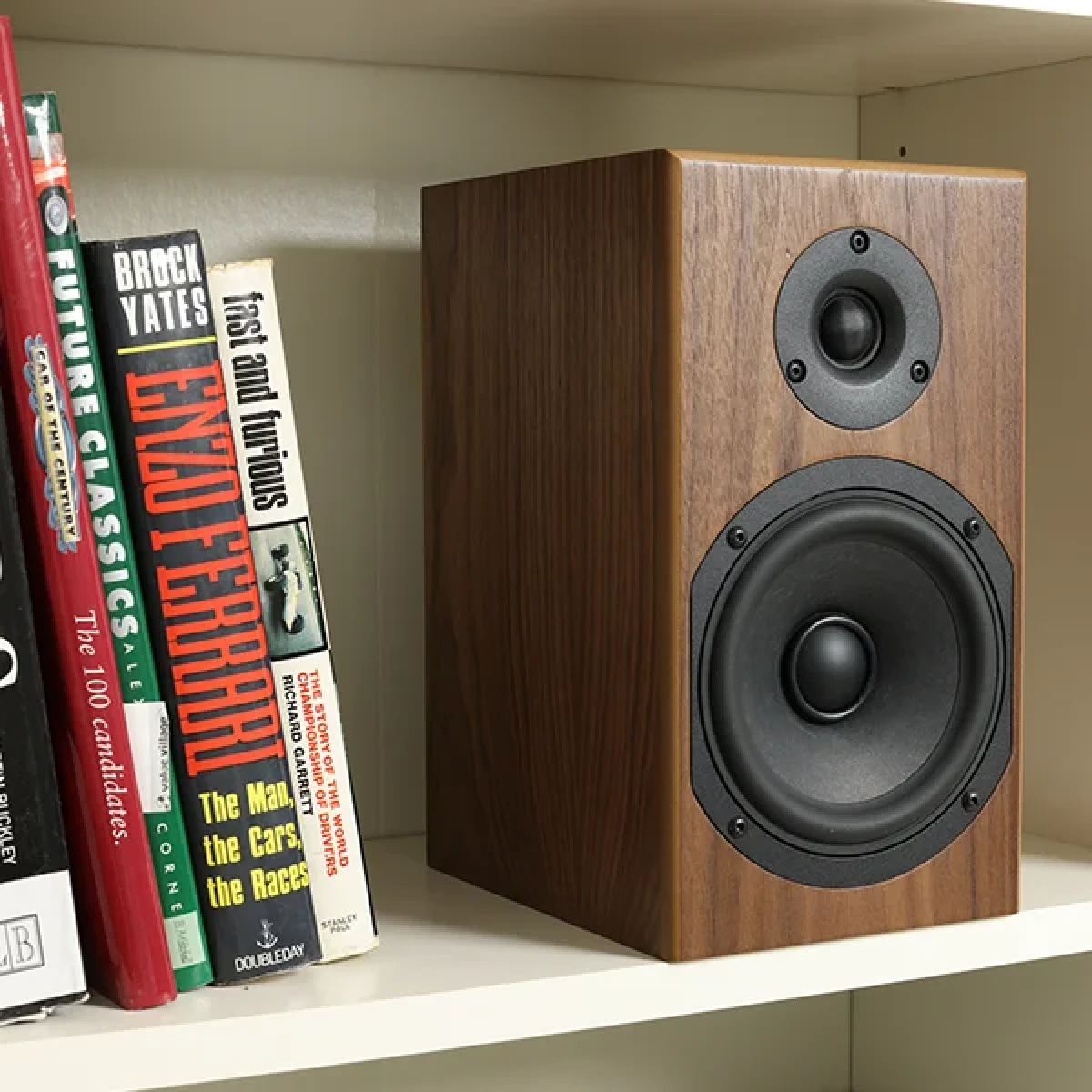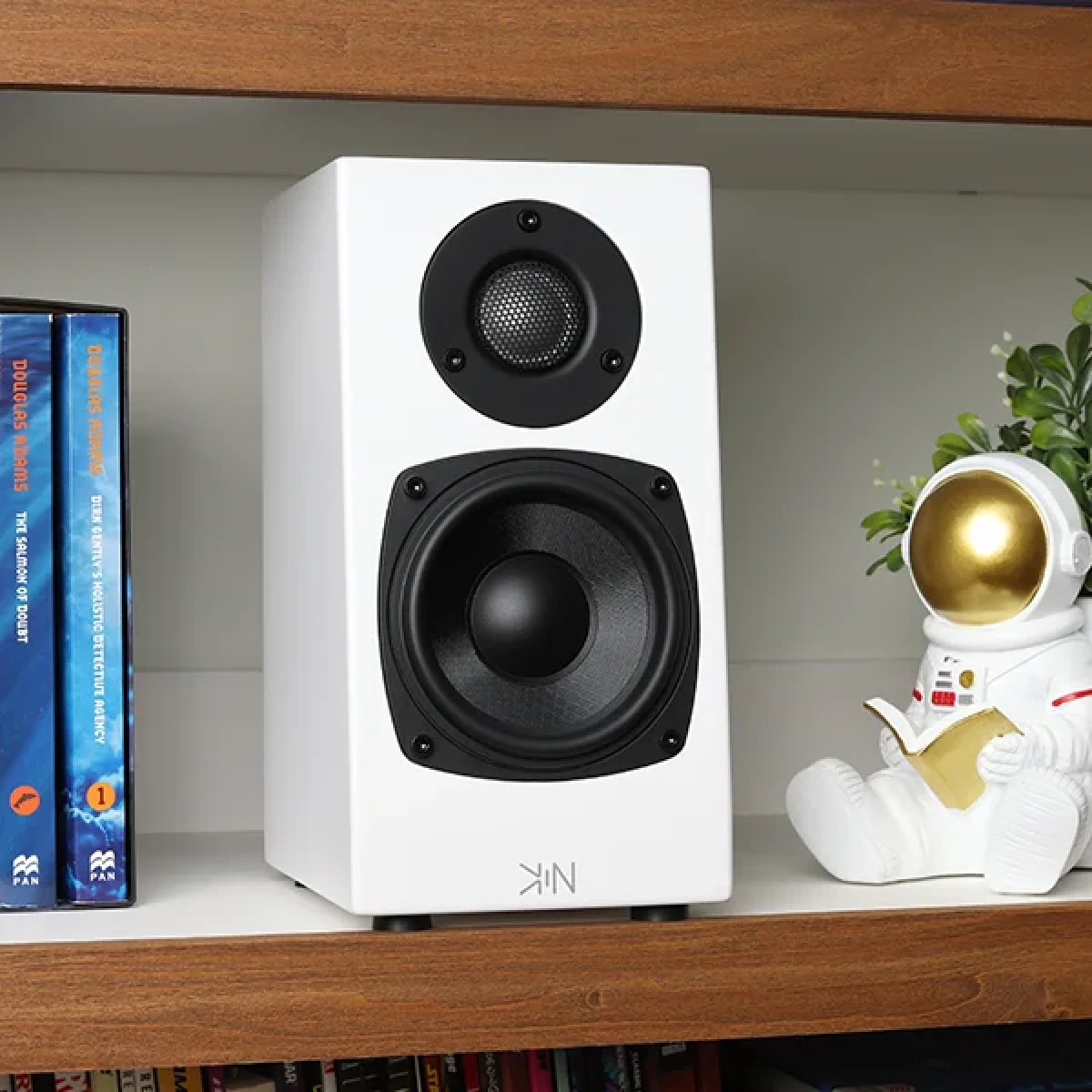Bookshelf Speakers — Totem Acoustic Bison Monitor
Description, images, technical data and specifications
Totem Acoustic Bison Monitor
Image source — © Totem Acoustic
Specifications
Model name
Bison Monitor
Frequency Response low +/- 3dB (Hz)
40
Frequency Response high +/- 3dB (Hz)
29 500
Sensitivity (dB at 1 W/1m)
87
Impedance (Ohms)
8
Power amplifier requirements (W)
30 - 150
Has internal amplification
N/A
Internal amplification power (W)
N/A
Size (sm)
17.1 × 33.3 × 24.3
Weight (kg)
13.49
Official link
More components

Bookshelf Speakers
Totem Acoustic Signature One
The model has an impressive 165-centimeter woofer, which is paired with a 25-millimeter aluminum tweeter, and is controlled by a specially designed crossover.

Bookshelf Speakers
Totem Acoustic Element Fire V2
The Element Fire V2 is equipped with modified basslines: the 7-inch proprietary Torrent woofers began to sound deeper and wider (frequencies from 25 Hz are reproduced), the basslines were also equipped with enlarged dust caps with additional damping, and an additional seventeenth magnet appeared in the magnetic system for more precise control over the coil.

Bookshelf Speakers
Totem Acoustic LOON Monitor
A 5.75-inch bass driver and an inch tweeter with a fabric dome are installed inside the monitors. The grills are attached using magnets. Users can choose from three colors: black, white or dark walnut.

Bookshelf Speakers
Totem Acoustic KIN ONE
The KIN ONE monitor case, which in many ways resembles the Element Fire v2 cabinet, but in a smaller size, improves the bass sound and effectively combats resonances. The monitors use a crossover with 2nd-order filters, which uses only seven precision components in the circuit. In addition, the "L-shaped" bass reflex port allows the monitor to reproduce frequencies below 65 Hz, reaching 40 Hz at a level of -12 dB.


